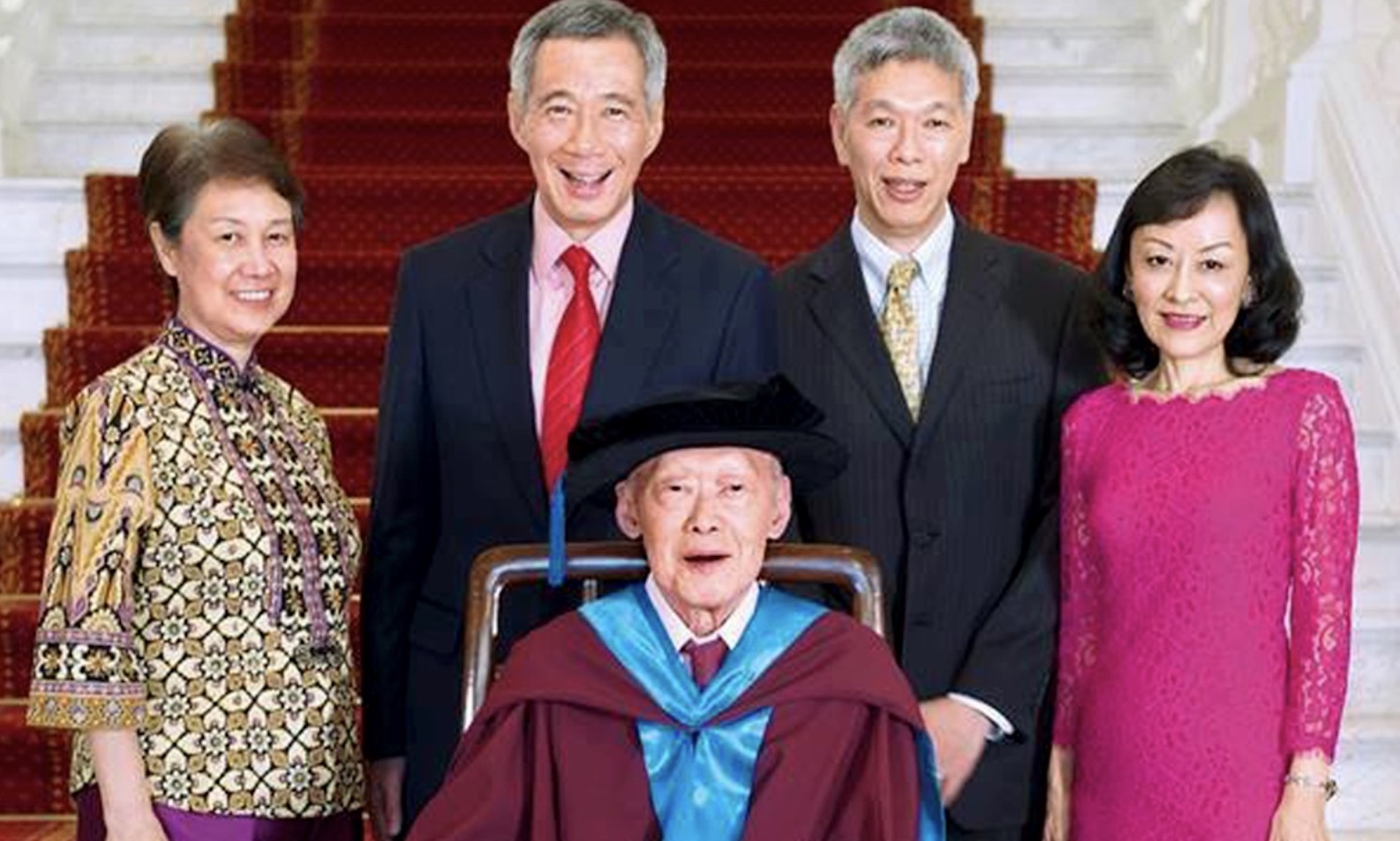Singapore — Lawyer Lee Suet Fern issued a statement on Friday (Nov 20) after it was announced that the Court of Three Judges had suspended her from practising for 15 months over her handling of the last will of her late father-in-law, Singapore’s founding Prime Minister Lee Kuan Yew.
“I disagree with this decision. There was no basis for this case to have even been initiated,” she said in a media statement, which her husband, Mr Lee Hsien Yang, made public on his Facebook page shortly after noon on Friday.
The written judgment from the Court of Three Judges, which is the highest disciplinary body for lawyers, said that Mrs Lee had been found guilty of misconduct, as she had “blindly followed the directions of her husband, a significant beneficiary under the very will whose execution she helped to rush through”.
The case against Mrs Lee was initiated last year. On Jan 7, 2019, the Attorney-General’s Chambers (AGC) referred a case to the Law Society over her possible misconduct in the preparation of LKY’s last will. The case had nothing to do with the validity of the will, according to the AGC.
The AGC stated its statutory duty to deal with misconduct from lawyers and that, under Section 85 (3) of the Legal Profession Act, it was required to consider if the issue should be brought to the attention of the Law Society.
Mr Lee Hsien Yang had asked, in a Facebook post the following day, what public interest was being served by the AGC. He also asked, since all parties had been aware of the facts for years, why his wife’s case was being “rushed” in 2019.
The Attorney-General said the AGC “became aware of a possible case of professional misconduct by Mrs Lee. Mrs Lee appears to have prepared the last will of Mr Lee Kuan Yew and arranged for Mr Lee Kuan Yew to execute it, despite the fact that her husband, Mr Lee Hsien Yang, is one of the beneficiaries under the last will. Mr Lee Hsien Yang’s share increased under the last will”.
On Aug 13 this year, the Law Society sought to have Mrs Lee struck off the rolls for professional misconduct over her handling of Lee Kuan Yew’s final will.
The Court of Three Judges, comprising Chief Justice Sundaresh Menon, Judge of Appeal Judith Prakash and Justice Woo Bih Li, heard arguments from both sides for five hours.
In its judgment on Friday, the court said that Mrs Lee had been in an “unseemly rush” in executing the will, acting at the behest of her husband. It pointed out that the will was signed a mere 16 hours after the first draft was sent to Lee Kuan Yew by Mrs Lee. Lee Kuan Yew’s lawyer, Ms Kwa Kim Li, who had executed his first will, was left out of the arrangements concerning the final will.
The court said: “On the one hand, (she) was loyal to her husband, who was a significant beneficiary under the last will and who was evidently keen to rush its execution.
“On the other hand, (she) had a responsibility to act honourably and to ensure that (Mr Lee Kuan Yew), who she would reasonably have regarded as her client, was fully apprised of the factual position before he proceeded to execute the last will,” adding that she “not only failed to act with prudence, but in fact acted with complete disregard for the interests of (Mr Lee Kuan Yew)”.
“In those circumstances, her failure to put a stop to her husband’s efforts to procure the execution of the last will with unseemly haste can only be described as improper and unacceptable.”
However, according to a straitstimes.com report, the Court of Three Judges did not agree with certain findings of the two-man Disciplinary Tribunal appointed by the Chief Justice that had in February found Mrs Lee guilty of improper professional conduct, specifically that there had been an implied retainer between Mrs Lee and Lee Kuan Yew, and that their relationship had been that between solicitor and client. It added that Mrs Lee was not given direct instructions or directions by Lee Kuan Yew.
The findings from this tribunal had been submitted to the Court of Three Judges.
The latter’s disagreement with certain findings of the tribunal was noted by Mrs Lee in her statement on Friday. She said: “The Court of Three found ‘no solicitor-client relationship existed’ between Lee Kuan Yew and myself. The court found there was no dishonesty in my dealings with Lee Kuan Yew and there was no finding that the will was procured by fraud or undue influence.”
Mrs Lee also noted that Lee Kuan Yew’s will had been a private one, and that he “knew” and “got what he wanted”, adding that the court had found that “he (Lee Kuan Yew) was content with it (this will)”.
She wrote that neither Lee Kuan Yew, who died in 2015, nor any of his beneficiaries or his lawyer Kwa Kim Li, had lodged any complaint over the will, but that a complaint had only arisen years later by the AGC.
She added that “Lee Hsien Loong made extensive submissions, but did not present himself as a witness and was not subject to cross-examination… Probate for Lee Kuan Yew’s will had been granted by the courts in 2015. Probate had been sought on the urging of Lee Hsien Loong and Lucien Wong, before he became Attorney-General”. /TISG
Law Society seeks to disbar Lee Suet Fern over conflict of interest arising from Lee Kuan Yew’s will

